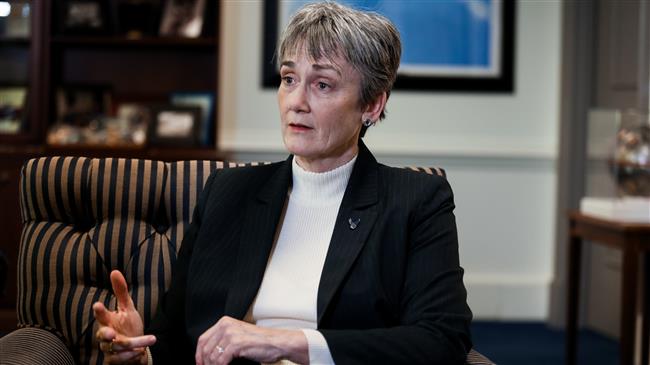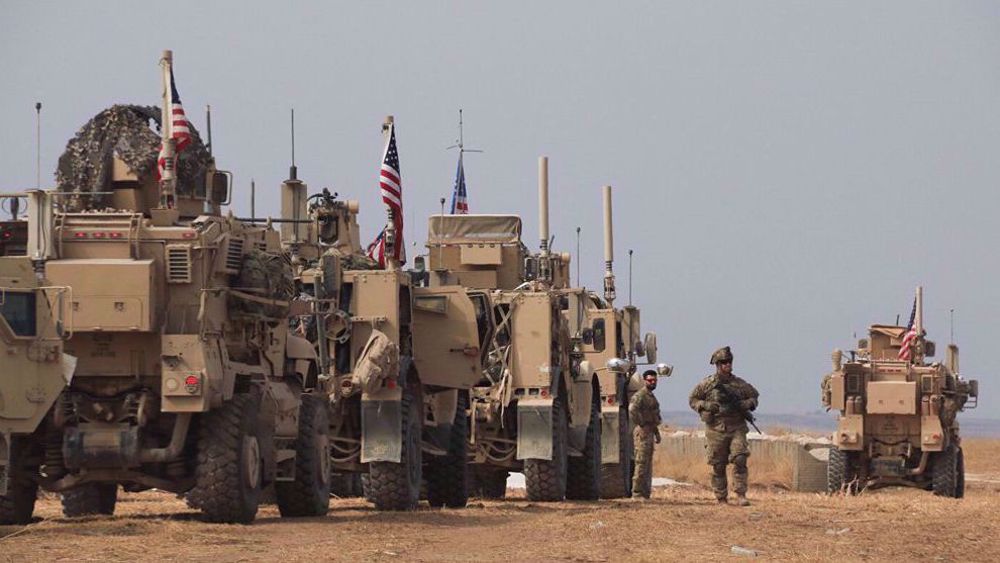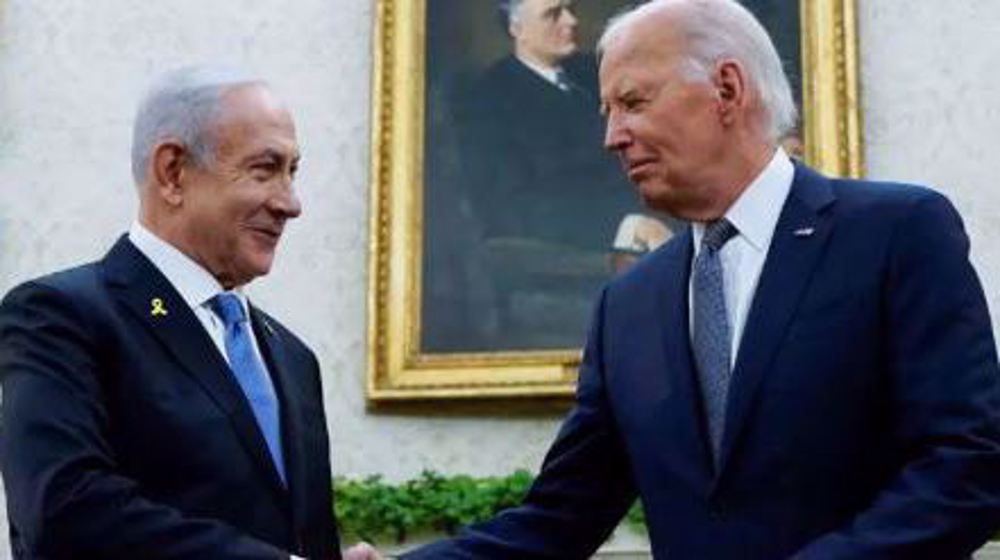US Air Force Secretary Heather Wilson to resign
US Secretary of the Air Force Heather Wilson, one of the first officials to join the Trump administration in the Pentagon, says she will resign in May and return to academia.
Wilson was considered a top candidate to become the next secretary of defense and now her resignation will leave another vacant post at the top level of the Pentagon.
Wilson submitted a resignation letter and released a statement Friday morning, saying she has informed President Donald Trump of the matter.
"Today I informed the President I will resign as Secretary of the Air Force to be President of the University of Texas at El Paso. It has been a privilege to serve with our #Airmen—I am proud of the progress we have made to restore the readiness & lethality of #USAF."
She said she would resign her position "effective May 31," noting, this "should allow sufficient time for a smooth transition and ensure effective advocacy during upcoming Congressional hearings" on the Air Force's budget.
Wilson had long been a critic of Trump's plans for a separate branch of the military devoted to space as pre-existing Air Force units would comprise much of the new organization.
According to some defense officials, who have previously spoken to CNN, Wilson had clashed with the current acting Secretary of Defense Patrick Shanahan. The two offered starkly different estimates of the cost of setting up Trump's Space Force.
This comes after Defense Secretary James Mattis, Pentagon spokeswoman Dana White and the Pentagon’s chief of staff Rear Admiral Kevin Sweeney have all quit their posts.
In December, Mattis announced his resignation over policy differences with Trump. His departure had been anticipated since Trump announced that he was withdrawing US troops from Syria despite opposition from US allies and top US military officials.
Mattis said in his resignation letter that he was stepping down so Trump could have a defense chief whose views align more closely with his own.
Later that month, White announced her resignation, followed by Sweeney, who quit his job in January.
The US president pushed Mattis out of his post after disagreement over Trump's decision to end the US military presence in Syria and scale it back in Afghanistan, making Trump further isolated at helm.
VIDEO | Hezbollah rains attack drones down on elite Israeli brigade
Leader: All captains of criminal, Zionist, terrorist gang must be prosecuted
Iran further raises its oil prices for Chinese buyers: Report
Iran to launch major pressure-boosting projects in South Pars
VIDEO | Escalation amid ceasefire talks
EU's Borrell says ICC arrest warrants for Israeli leaders binding
VIDEO | Press TV's News Headlines
VIDEO | Massacre in Pakistan’s Parachinar sparks outrage










 This makes it easy to access the Press TV website
This makes it easy to access the Press TV website